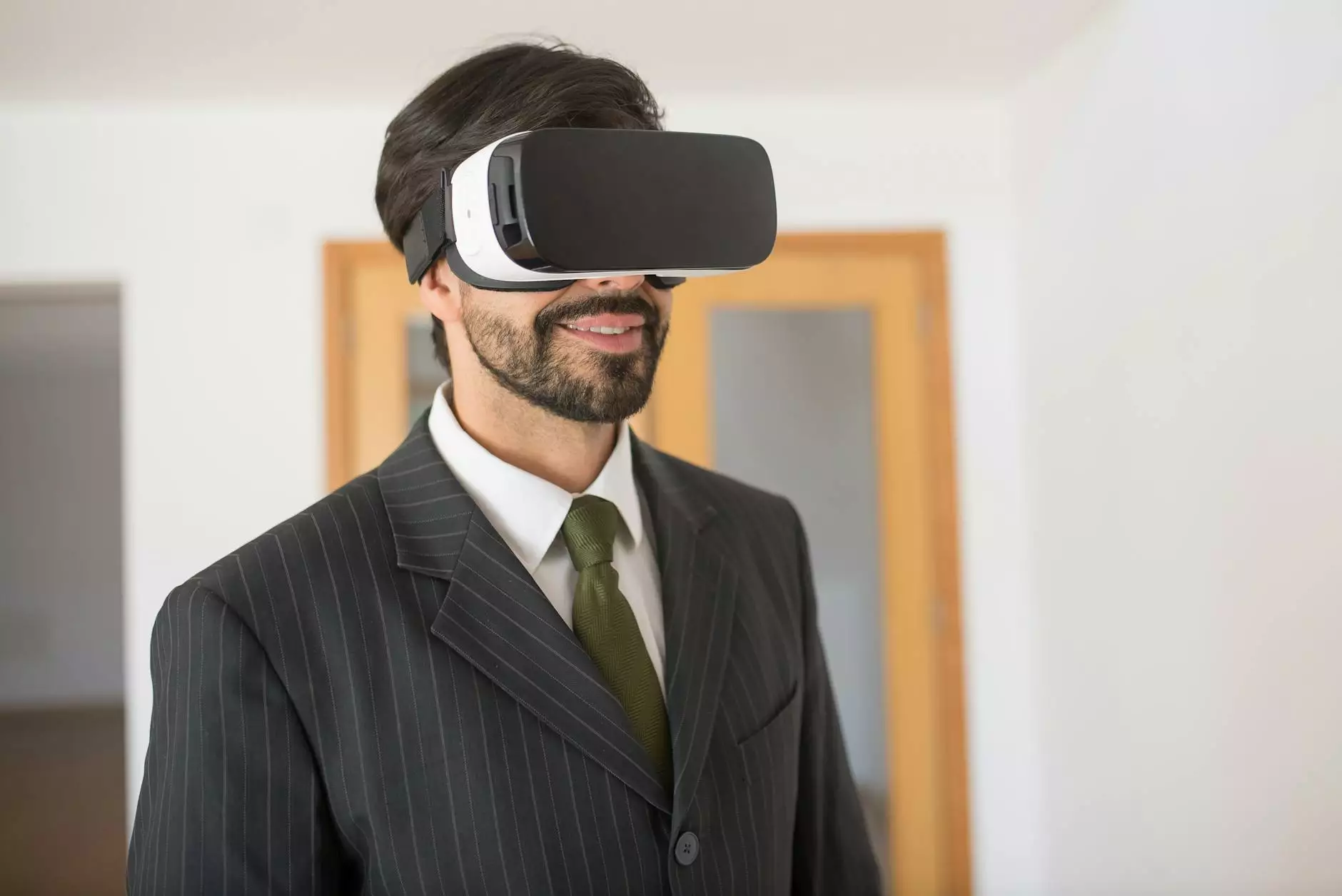Innovative Virtual Reality Business Ideas for a Thriving Future

The rise of virtual reality (VR) technology has opened up exciting opportunities for entrepreneurs and businesses alike. As industries across the globe lean towards digital transformations, the potential for profitable virtual reality business ideas has never been more significant. In this article, we will explore numerous creative suggestions that can help you design a successful VR venture.
1. Virtual Reality in Education
Education remains one of the most promising sectors for virtual reality. By harnessing the immersive experience of VR, educators can engage students in ways that traditional methods cannot.
- VR Educational Courses: Develop immersive courses that allow students to explore complex subjects, such as biology, astronomy, and history, through captivating VR simulations.
- Virtual Field Trips: Create platforms that enable virtual field trips to historical sites, museums, or even outer space. Students can learn while virtually walking through these incredible environments from their classrooms.
- VR Teaching Tools: Design tools for teachers to create their own VR lessons, making it easier to integrate technology into the curriculum.
By providing unique educational experiences, businesses in this space can foster better learning outcomes, engage students effectively, and cater to various educational institutions seeking innovative solutions.
2. Virtual Reality Centers
As the demand for immersive VR experiences grows, establishing a virtual reality center can be a lucrative opportunity.
- VR Gaming Arenas: Create dedicated spaces where gamers can experience the latest VR games in a high-quality environment with advanced equipment.
- Corporate Event Spaces: Facilitate corporate gatherings and team-building events through immersive simulations that allow participants to engage in unique challenges.
- Fitness VR Studios: Combine fitness and gaming by offering VR workouts that make exercising an enjoyable experience.
With the popularity of VR technology, these centers can attract a diverse crowd, from casual gamers to fitness enthusiasts, providing entertainment and enhancing social interactions.
3. Virtual Reality Content Creation
With VR technology evolving, there’s an increasing demand for quality content. If you have skills in graphics, programming, or storytelling, consider these options:
- VR Film Production: Start a studio specializing in creating immersive VR movies. This can revolutionize the way stories are told in cinema.
- Interactive Storytelling: Focus on developing interactive narratives that allow audiences to engage with characters and environments dynamically.
- VR Training Simulations: Create training programs for professionals in fields such as healthcare, aviation, and military, utilizing VR to provide safe and realistic training scenarios.
By diving into content creation, you can tap into this expanding market and cater to various sectors looking for innovative ways to present information.
4. Virtual Reality Therapy
The medical field is also embracing virtual reality, using it as a tool for therapeutic applications.
- Exposure Therapy: Develop VR programs for patients dealing with phobias or PTSD. Immersive environments can help them confront fears in a controlled setting.
- Rehabilitation Programs: Create VR-based rehabilitation programs for patients recovering from injury or surgery, providing engaging activities that promote healing.
- Stress Relief and Mindfulness: Offer VR experiences that enable users to escape into tranquil environments, helping to reduce stress and improve mental well-being.
As the healthcare industry continues to embrace technology, VR therapy services can provide essential support in enhancing patients' treatment and recovery experiences.
5. Real Estate Virtual Tours
Real estate has been transformed by virtual reality, offering potential buyers immersive property tours without stepping a foot on the property.
- VR Showrooms: Create virtual showrooms that allow clients to explore properties in detail on their schedules, providing flexibility and convenience.
- Interior Design Visualizations: Offer services to help homeowners visualize design changes in their spaces through VR, allowing them to experience renovations before they happen.
- Remote Property Viewing: Develop a platform that allows agents to host real-time virtual tours, expanding their reach to international clients who may not be able to visit physically.
This segment of the virtual reality business has the potential for high revenue as more clients seek innovative ways to find their dream homes efficiently.
6. VR in Tourism and Hospitality
The tourism industry can leverage virtual reality to enhance the traveler’s experience, allowing imaginative exploration of destinations before booking trips.
- Virtual Destination Tours: Develop VR experiences showcasing destinations, providing users with a taste of the location's attractions.
- Hotel Virtual Tours: Offer hotels the chance to create virtual walk-throughs, allowing potential guests to experience their accommodations beforehand.
- Cultural Experience Platforms: Create platforms featuring cultural events or experiences in virtual settings, allowing users to engage in customs from the comfort of their homes.
By integrating VR technology into tourism strategies, businesses can significantly enhance customer engagement and drive higher conversion rates.
7. Virtual Reality Marketing
Marketing is entering a new era with immersive experiences becoming a focal point for brand engagement.
- VR Advertising Campaigns: Create interactive ads that allow users to experience a brand in an immersive context, resulting in deeper engagement.
- Product Demonstrations: Develop VR demos for products, offering potential customers the chance to interact with items in a virtual environment.
- Brand Storytelling: Utilize VR to tell compelling brand stories, pulling in users through emotionally engaging narratives and visuals.
Companies that adopt VR marketing strategies can differentiate themselves in a crowded market, making a lasting impression on their audiences.
8. Social VR Platforms
As people look for new ways to connect, social VR platforms can provide an engaging virtual space.
- Virtual Meetups and Conferences: Create platforms that host virtual events, allowing people to gather from around the world in shared spaces.
- Social Gaming Environments: Develop virtual worlds where players can interact, collaborate, and compete in games, enhancing social interaction.
- Online VR Communities: Build community spaces that focus on interests or hobbies, allowing like-minded individuals to share experiences and content.
The demand for social interactions in virtual spaces is surging, providing a fertile ground for innovative business ideas that cater to various demographics.
Conclusion
Entrepreneurs and business leaders can capitalize on multiple virtual reality business ideas available in today's digital landscape. From education to tourism, the possibilities are vast and varied, presenting opportunities for innovation and growth. As more individuals and organizations realize the potential that VR technology holds, the market for these business ideas is poised for expansion.
By entering the world of virtual reality, you can not only contribute to the evolution of how we interact with technology but also tap into a rapidly growing industry that promises to redefine our experiences.









